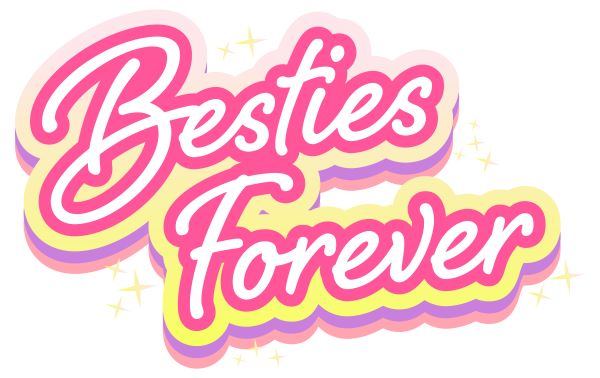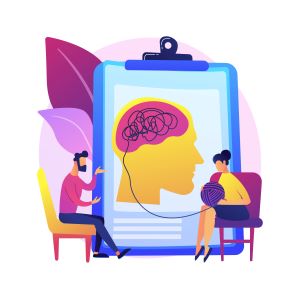Sign me Up!
How many Facebook posts do we get everyday that includes some 3 Step to Wonderful? These steps usually include a story about how this person went from rags to riches, miserable to marvelous, or overweight to ideal after following these three simple steps.
Come On Man! If it were that easy, there wouldn’t be therapists, coaches, self-help gurus, self-help articles, books, etc. I’m not saying that it is hard, but as someone once said, “Nothing in life comes easy.”
Nothing in Life Comes Easy
This is a somewhat true statement. It has been my experience and that of the thousands of clients over the years, that there is one thing that comes super easy to us humans – TROUBLE.
Everything else takes work. A much more accurate statement might be, “Nothing in life worthwhile comes with an easy button.”
It doesn’t mean that we have to work tirelessly to achieve what we want for our mental health. To feel the way we want to feel and do so on a regular basis does require some work:
- Mindfulness of our reasons or goals,
- Application of know how,
- Dedication to apply the know how, and
- Recognition when things have changed.
Ain’t no easy button
Before I get into what I mean, I do want to explain the title. Years ago I worked in a men’s medium security prison and daily inmates came to me wanting solutions to problems. Being locked up does pose a bunch of issues when it comes to solving problems.
Many of the solutions that us counselors suggested weren’t considered and one reason was that they were looking for that easy button or to use monopoly terms – get out of jail free card. I don’t blame them. I want the easy button too. However in looking for the quick fix, the easy 3 step to wonderful, we miss what can actually help.
Why do we want the Easy Fix?
One reason that I have seen most often over the years is Low Frustration Tolerance or Symptom Stress. I have written about this in a blog article title – Two Biggest Barriers to Success. Basically, this is a situation in which we have decided that we cannot tolerate the distress of the problems.
If we have had a lot of past traumas, disappointments, failures, etc, we may come to believe very negative things about ourselves. Sometimes those negative beliefs include our capacity to improve. It’s as if we begin to think that improvement must be through a miracle. Or we may have negative beliefs about our ability to learn and therefore the solutions have to be very simple. Or we think we can’t stand our problem so the solution has to be right now.
Many different negative beliefs about ourselves or our agency often come with the easy-but-ever-so-awful-solution of distraction. These distractions can range from chemical – drugs and alcohol or behavioral – porn, sex, frivolous spending, overeating, or over consumption of social media. These distractions ease the pain in the moment but they all come with long-term consequences.
One of the most ironic and difficult of the long-term consequences of distraction is how over time, we have less and less tolerance for problems. In other words, stressors start out being pretty big ones before we seek solace in a vice, but the longer we use a vice, the less difficult a stressor has to be before we seek solace in the vice.
Then when we seek a solution we want it to be quick and easy like a miracle because our frustration tolerance is very low. Problem is that there isn’t a miracle or an easy button.
The Hard Work
Does it require hard work to solve our problems? Let’s start by defining hard work. Would you say that it is hard work to carry an 80 lb bag of concrete up three flights of stairs? I would say yes. Work is related to actual effort required. The work to carry an 80 lb bag of concrete is much greater than a helium filled balloon.
When it comes to resolving our psychological problems such as no longer using a distraction and resolving the underlying mental patterns, there is very little actual effort required. I have heard over the years that it is hard to give up a favorite form of distraction. Which takes more effort – engaging in a distraction such as drinking or not? Very likely as you are reading this, you aren’t engaging in a vice. To engage with alcohol, you have to go buy it, bring it home, store it, then when you want to drink it, you have to retrieve it from the storage, prepare the drink and then drink it and repeat process. Then the fights with loved ones who aren’t approving of the vice, etc.
Whereas the effort to not drink doesn’t require anything. You’re not required to to do anything. Instead you are going about your day.
Actual Mental Effort Required to Change
We know that there isn’t an easy button or miracle cure and we know that change doesn’t require “hard work.” What is needed to make changes that can lead to health and happiness and living a more joyful life no matter what?
To resolve our issues and solve our problems, as I said earlier requires a few things:
- Mindfulness of our reasons or goals,
- Application of know how,
- Dedication to apply the know how, and
- Recognition when things have changed.
Mindful of Our Goals
Us humans are very goal directed creatures. Pretty much everything that we do is preceded by a reason to do something. If you get yourself to work your goal in that moment was to get to work. We direct ourselves to do things and that direction is our goals in that moment.
When it comes to goals in therapy or a self-help course, it is those things that we want to gain as a result of doing the program. If we are anxious and have a fear of driving, a goal in therapy may be to resolve the anxiety and drive comfortably. Our goals are the answer to the question: As a result of therapy or a self-help course, how will your life be different? What do you want to change?
In all my programs, defining those goals is priority number 1. I describe it as the roadmap. We don’t take a trip across country without knowing our route.
Then we must be aware of what our goals are and get them in our minds. If our goals are our roadmap, the awareness is looking at that map to make sure we are staying on the route we chose. If we say that one of our goals is to resolve anxiety and yet we don’t remain aware, we aren’t likely to achieve that goal.
Application of Know How
This is the special sauce that coaches, therapists, self-help books provide in their programs. There are many programs that can help a person resolve issues and all of us have the one that we believe in.
The program that I use is Rational Living Therapy (RLT) and I teach rational self-counseling skills as a coach, therapist and in my self-guided courses. It is considered cognitive behavioral therapy and plenty of studies shows it works. I can say through my practice that my clients get better using it.
Dedication to Apply the Know How
This is the effort exerted. For my programs, the average time expected to devote is a couple of hours per week. Of course, the more time and dedication the better the outcomes.
Basically this is the actual doing of any program. If you were trying to lose weight or get into shape, this would be the effort to follow the diet or exercise program. Dedication is the mental energy to stay on task and do those things required by any program.
Recognition when things have changed
This may seem like an odd statement to include. Certainly if we have done the work to make the changes, we will know that we have changed. That is not necessarily true. Many clients make amazing changes in their lives but don’t see it.
One of Delilah’s goals was to reduce anxiety. At one point we reviewed her goals and she said she was frustrated with herself because nothing changed. Lots had changed! She was going into stores and shopping, traveling out of town and over night, she was going to doctors and even dentist appointments and all without the same amount of tears and fears as before. Since she hadn’t consider those changes, she believed that therapy didn’t work.
Or Jake who took a course on stopping anger, emailed me about his frustrations. When we talked about the intensity, frequency and durations of arguments, prior to the course he and his wife were fighting several nights a week and not sleeping because of the fighting. One fight may last several nights. At the time that he emailed me, they hadn’t had a fight for a couple of months but then argued and to him it was as though nothing changed. Oh lots changed to go from an average of 12 fights a month to one in two months.
Blogs
I wanted to name my blog there ain’t no easy button as an antidote to all the seemingly miraculous 3 steps to amazing programs. I want to write about aspects of mental health through the lens of real help for real people.
For me this blog is a way to share my passion about my special sauce so to speak and how I help people get better from past traumas. When someone comes to see me for therapy or take a course, there is nothing more satisfying to see the changes. They often go from chaotic relationships to stable and healthy, from screaming at loved ones to resolving problems without raising their voice. They often do things like finally work on the dream that they thought impossible.
Resources
Want to learn about how trauma events affect our brain and what you can do about those changes? Click here to watch a free webinar now.
Want to get the latest posts in your inbox?
 Skip to content
Skip to content


